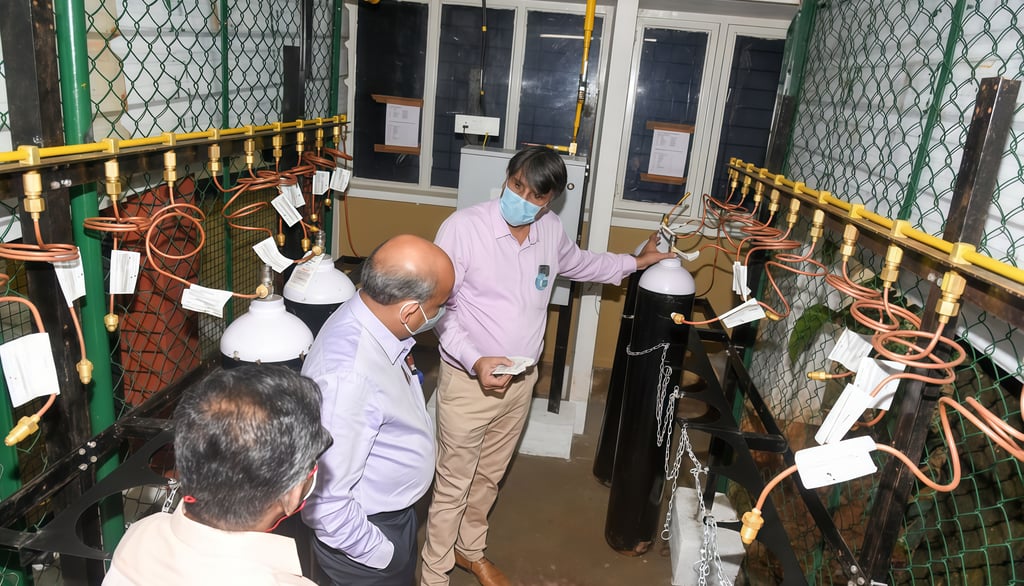The Silent Guardians: Understanding the Role of Biomedical Engineers in Medical Gas Pipeline Systems
10/27/20252 min read


Introduction to Biomedical Engineers in Healthcare
In the realm of healthcare, numerous professions work tirelessly to ensure the safety and well-being of patients. Among these unsung heroes are biomedical engineers, who play a crucial role in the operation and maintenance of Medical Gas Pipeline Systems (MGPS). These professionals operate behind the scenes, providing a silent yet indispensable support system that underpins successful medical procedures.
The Critical Functions of Biomedical Engineers
Biomedical engineers are integral to the functioning of healthcare facilities. Their responsibilities can be categorized into several key areas:
- System Design & Planning: Biomedical engineers are instrumental in the design and planning of MGPS. They ensure that these systems are not only efficient but also comply with strict safety standards. Their attention to detail further guarantees that the systems can adapt to the ever-evolving needs of modern medicine.
- Risk-Free Installation: The installation of medical gas systems is no simple task. Biomedical engineers oversee the precise installation, ensuring that every pipe and connector is secure. A single unsafe pipeline connection can result in life-threatening situations within seconds.
- Quality & Safety Checks: Ongoing quality and safety checks are vital in any healthcare setting. Biomedical engineers routinely conduct assessments to ensure that all medical gas lines operate smoothly and safely.
- Emergency Response: In emergencies, having a biomedical engineer on the team can make all the difference. Their expertise allows for quick decision-making and rapid response, mitigating risks associated with gas delivery failures.
- Training the Frontline: Training healthcare personnel on the use and management of medical gas systems is another critical responsibility. Biomedical engineers equip frontline staff with essential knowledge, thereby enhancing patient safety.
Why Their Work Matters
The importance of biomedical engineers cannot be overstated. They ensure that hospitals and healthcare facilities operate without complications related to medical gases. With their training and skills, they help create safer healthcare environments through meticulous planning, compliance audits, and operation standardization. At Medevices, we partner closely with hospital biomedical teams to deliver:
- Precise installation and upgrades of MGPS
- Thorough compliance audits
- Standards for operations and training
- A strengthened healthcare environment that prioritizes patient safety
To conclude, the contributions of biomedical engineers are vital to the healthcare landscape. They are indeed the silent guardians behind every breath taken in hospitals across the world. Their unwavering dedication not only protects patient lives but also enhances the efficiency and safety of medical gas systems, making them true unsung heroes in our society.
Services
© 2024. All rights reserved.
Products


We're Making it easier to find Better Medical Devices
Find us on Map:
Contact Information
Phone: +91 9029457428 | +91 9833236604 | +91 7506374381
Email : medevices2018@gmail.com | sales@medevices.in
